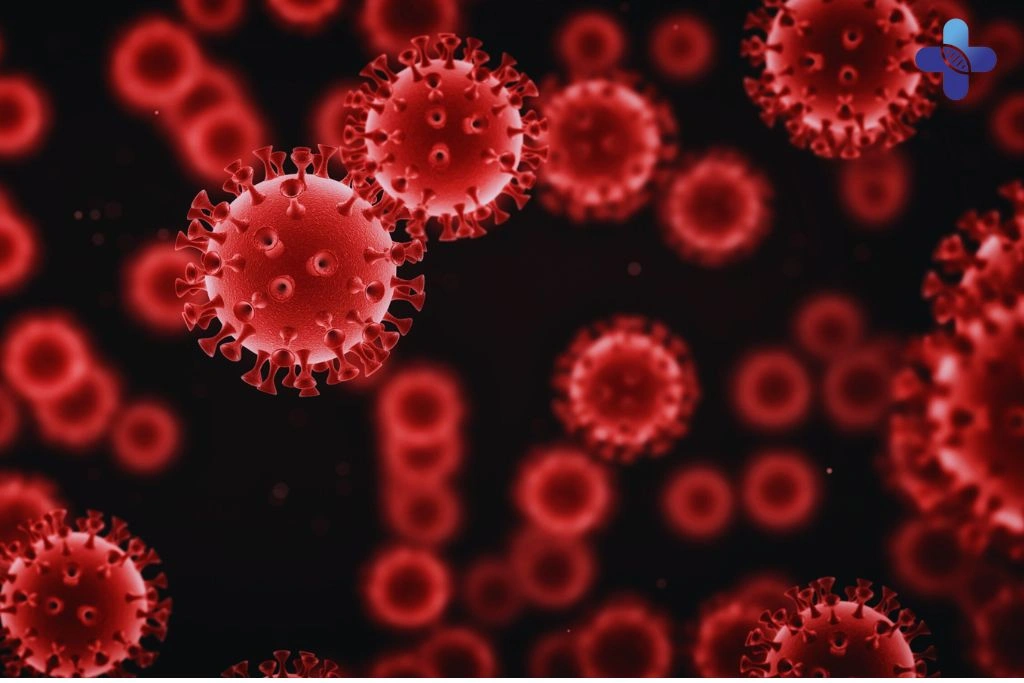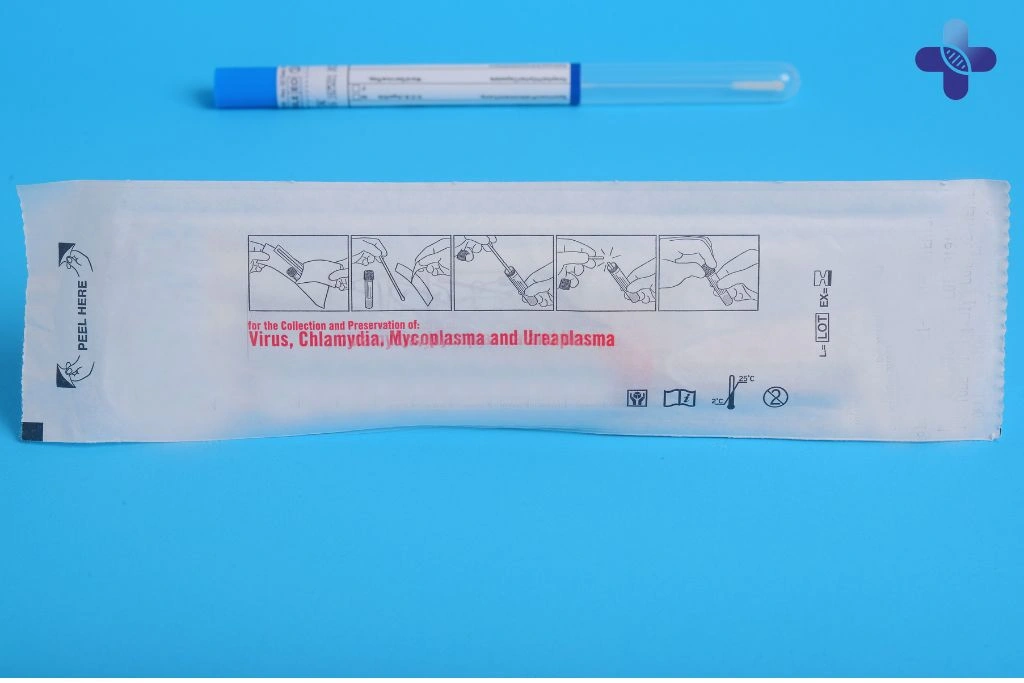Ureaplasma urealyticum is a common bacterial infection and one of the STDs in Bali that often goes unnoticed due to its lack of symptoms in many individuals. However, if left untreated, it can lead to complications such as infertility, urinary tract infections, and discomfort. If you’re in Bali and suspect an infection, early diagnosis and treatment are essential.

Comprehensive Guide to Ureaplasma Urealyticum in Bali: Symptoms, Testing, Treatment, and Prevention
Ureaplasma urealyticum is a bacteria found in the urogenital tract, often asymptomatic but sometimes causing painful urination, discharge, or pelvic discomfort. It can lead to urethritis, bacterial vaginosis, and reproductive health issues, making early STD testing in Bali essential. Life Everyouth Clinic Bali offers Ureaplasma testing and antibiotic treatment to manage infections effectively. Practicing safe sex, good hygiene, and regular screenings helps prevent complications.
What is Ureaplasma Urealyticum?
Ureaplasma urealyticum is a type of bacteria found naturally in the urogenital tract but can become problematic when overgrown. It spreads primarily through sexual contact, but non-sexual transmission is also possible.
Symptoms of Ureaplasma Urealyticum
Many individuals with Ureaplasma Urealyticum may not experience noticeable symptoms, making it difficult to detect without testing. However, when symptoms do appear, they can vary between men and women and may resemble other urogenital infections. Below are the most common symptoms along with a more detailed explanation of their impact.
Pain or Burning Sensation During Urination (Dysuria)
One of the most reported symptoms is a burning or painful sensation while urinating. This occurs because Ureaplasma Urealyticum can cause irritation and inflammation in the urethra, leading to discomfort. The pain may start as mild irritation and gradually become more severe, particularly if the infection spreads to the bladder or urinary tract. If untreated, this can lead to further complications such as urinary tract infections (UTIs) or even kidney infections.
Unusual Genital Discharge
Men and women infected with Ureaplasma Urealyticum may experience abnormal genital discharge. In men, this is often a clear or slightly cloudy discharge from the urethra, which can be mistaken for other sexually transmitted infections (STIs). In women, it may appear as an increase in vaginal discharge, sometimes accompanied by an unpleasant odor. The presence of discharge indicates that the bacteria are actively multiplying in the urogenital tract, triggering an inflammatory response.
Pelvic Pain in Women
Women with an untreated Ureaplasma Urealyticum infection may develop pelvic pain, which can range from mild discomfort to severe cramps. The pain is typically centered in the lower abdomen and may worsen during intercourse, urination, or menstruation. In some cases, the infection can spread to the reproductive organs, leading to conditions such as pelvic inflammatory disease (PID), which can have long-term effects on fertility if not treated early.
Testicular Discomfort in Men
Men infected with Ureaplasma Urealyticum may experience testicular pain or swelling, particularly if the bacteria reach the epididymis—a tube located at the back of the testicle that stores and transports sperm. This condition, known as epididymitis, can cause tenderness, redness, and a sensation of heaviness in the affected testicle. If left untreated, prolonged inflammation may contribute to reduced sperm quality and potential fertility issues.

Testing for Ureaplasma Urealyticum in Bali
At Life Everyouth Clinic Bali, we provide comprehensive and confidential STD testing in Bali, including screening for Ureaplasma Urealyticum. Since this bacterial infection often goes unnoticed due to a lack of symptoms, early testing is crucial, especially for those who are sexually active or experiencing any unusual discomfort. Our clinic offers two primary testing methods to detect Ureaplasma Urealyticum accurately and efficiently.
Urine Test: A Simple and Non-Invasive Diagnostic Method
A urine test is the most convenient and non-invasive method for detecting Ureaplasma Urealyticum. Patients are required to provide a urine sample, which is then analyzed for the presence of the bacteria. This test is ideal for individuals who prefer a discreet and hassle-free screening process.
- Accuracy: While effective, urine tests may not always detect low bacterial counts, making additional testing necessary in some cases.
- Convenience: No invasive procedures are required, making it comfortable for patients.
- Preparation: Patients may be advised to avoid urination for at least an hour before the test to ensure accurate results.
Swab Test: A Highly Accurate Diagnostic Approach
A swab test involves collecting a sample from the urethra (in men) or cervix (in women) using a sterile swab. This method provides higher accuracy compared to urine tests, making it the preferred option for individuals with symptoms or suspected exposure to Ureaplasma Urealyticum.
- Higher Sensitivity: Swab tests can detect even small traces of the bacteria, ensuring reliable results.
- Who Should Opt for This Test? It is recommended for individuals experiencing symptoms such as genital discomfort, pain during urination, or unusual discharge.
- Procedure: The test is quick and minimally uncomfortable, with results typically available within a few days.
Treatment Options Ureaplasma Urealyticum in Bali
If diagnosed, Ureaplasma Urealyticum can be effectively treated with antibiotics, typically doxycycline or azithromycin, depending on the severity of the infection and individual health factors. Our medical experts at Life Everyouth Clinic Bali will assess your condition and prescribe a personalized treatment plan to ensure complete eradication of the bacteria while minimizing the risk of recurrence. It is essential to complete the full course of antibiotics as prescribed, even if symptoms subside, to prevent antibiotic resistance and reinfection. Additionally, sexual partners may also need to be tested and treated to avoid reinfection and further transmission.

Tips to Prevent Ureaplasma Urealyticum
Practice Safe Sex by Using Protection
One of the most effective ways to prevent Ureaplasma urealyticum and other sexually transmitted infections is by practicing safe sex. Using condoms or dental dams can significantly reduce the risk of transmission by acting as a barrier against bacteria and viruses. It is essential to use protection correctly and consistently during all forms of sexual activity, including vaginal, oral, and anal sex. While condoms lower the risk, they do not provide 100% protection, so combining this practice with regular testing is highly recommended.
Get Regular STD Screenings, Especially If Sexually Active
Many people infected with Ureaplasma urealyticum experience no symptoms, making regular STD testing crucial for early detection and treatment. If you are sexually active, especially with multiple partners, routine screenings should be part of your healthcare regimen. Testing can help identify infections before they cause complications such as infertility or pelvic inflammatory disease. At Life Everyouth Clinic Bali, we offer comprehensive STD testing, including screenings for Ureaplasma urealyticum, ensuring early diagnosis and prompt treatment when needed.
Maintain Good Genital Hygiene
Proper hygiene plays a significant role in preventing infections like Ureaplasma urealyticum. Washing the genital area with mild soap and water daily helps remove bacteria and reduces the risk of bacterial overgrowth. Avoid using harsh chemicals, scented soaps, or douches, as these can disrupt the natural balance of bacteria in the genital area and increase vulnerability to infections. For women, wiping from front to back after using the toilet is essential to prevent the spread of bacteria from the anal region to the urethra and vagina.
Avoid Multiple Sexual Partners
Having multiple sexual partners increases the risk of contracting sexually transmitted infections, including Ureaplasma urealyticum. The more partners you have, the higher the chances of exposure to various infections, especially if safe sex practices are not consistently followed. If you choose to be sexually active with multiple partners, regular testing and open communication about sexual health with your partners are necessary steps to reduce risk. Mutual monogamy with a tested and infection-free partner is one of the safest ways to prevent the transmission of STDs.
By following these prevention tips, you can significantly lower your risk of Ureaplasma urealyticum infection. If you have concerns about your sexual health, Life Everyouth Bali provides professional medical consultations, testing, and treatment options to ensure your well-being.

Conclusion of Ureaplasma Urealyticum in Bali: Symptoms & Testing
While Ureaplasma urealyticum is often harmless, an overgrowth can cause health issues, including urinary tract infections, reproductive complications, and discomfort that may interfere with daily life. Early detection and proper treatment are essential to prevent long-term consequences, especially for sexually active individuals or those planning to conceive. At Life Everyouth Clinic Bali, we provide confidential and accurate STD testing, expert medical consultations, and effective treatment plans tailored to your needs. Our dedicated healthcare professionals prioritize your well-being, ensuring that you receive the highest quality care in a safe and supportive environment. If you’re in Bali and need professional medical assistance, don’t hesitate to book an appointment today for a thorough evaluation and peace of mind.
Frequently Asked Questions of Ureaplasma Urealyticum in Bali: Symptoms & Testing
Is Ureaplasma Urealyticum an STD?
Yes, Ureaplasma urealyticum is considered a sexually transmitted infection because it is commonly transmitted through unprotected sexual contact, including vaginal, anal, and oral sex. However, unlike many other STDs, Ureaplasma can also be present naturally in the urogenital tract without causing harm. While not everyone infected experiences symptoms, the bacteria can lead to complications when overgrown, making regular testing essential for sexually active individuals.
Can Ureaplasma Urealyticum go away on its own?
In some cases, the body’s immune system may naturally suppress the bacteria, leading to a decrease in symptoms or complete resolution of the infection. However, this is not always the case, and if the bacteria proliferate, it can cause persistent urinary tract infections, discomfort, or reproductive health issues. Because of this unpredictability, medical intervention is recommended if symptoms arise, and treatment with antibiotics is advised to prevent complications.
How long does it take for symptoms to appear?
If symptoms do develop, they typically appear within a few weeks of exposure. However, many individuals may remain asymptomatic for months or even years while still carrying the bacteria. This is why testing is crucial, especially for those experiencing recurrent urinary tract infections, pelvic discomfort, or unexplained fertility issues. Since the infection often remains unnoticed, routine screenings are the best way to detect and manage it before it leads to more severe health concerns.
Can I get tested for Ureaplasma Urealyticum in Bali?
Yes, Life Everyouth Clinic Bali offers comprehensive STD testing, including screenings for Ureaplasma urealyticum. Our clinic provides confidential and professional medical services, ensuring accurate diagnoses through urine or swab tests. If you are experiencing symptoms or want peace of mind regarding your sexual health, our experienced healthcare providers are ready to assist you with quick and reliable testing.
Is it possible to have Ureaplasma Urealyticum without symptoms?
Yes, many people carry Ureaplasma urealyticum without showing any symptoms. The bacteria can reside harmlessly in the genital or urinary tract, only causing issues when it multiplies excessively. Factors such as a weakened immune system, hormonal changes, or underlying infections can trigger symptoms. Since asymptomatic carriers can still transmit the bacteria to sexual partners, routine testing is highly recommended for sexually active individuals.
What antibiotics treat Ureaplasma Urealyticum?
The most commonly prescribed antibiotics for Ureaplasma urealyticum are doxycycline and azithromycin, which effectively target the bacteria and eliminate the infection. In cases of antibiotic resistance or persistent infections, fluoroquinolones or macrolides may be used as alternative treatments. It is essential to complete the full course of antibiotics as prescribed by a healthcare provider to ensure the bacteria is fully eradicated and to prevent recurrence.
Can Ureaplasma Urealyticum cause infertility?
Yes, if left untreated, Ureaplasma urealyticum has been associated with reproductive health issues, including infertility in both men and women. In women, the bacteria can lead to pelvic inflammatory disease (PID), which may cause scarring in the fallopian tubes, making conception difficult. In men, Ureaplasma can affect sperm quality and motility, potentially reducing fertility. Seeking timely medical care and completing the appropriate treatment can help prevent these complications.
How is the infection diagnosed?
Ureaplasma urealyticum is diagnosed through urine or swab tests conducted at a medical clinic. A urine test is non-invasive and often used for initial screening, while a swab test (taken from the urethra in men or cervix in women) may be recommended for more precise detection. At Life Everyouth Clinic Bali, we provide accurate and confidential diagnostic services to identify Ureaplasma infections and recommend the best course of treatment.
Is Ureaplasma Urealyticum contagious?
Yes, Ureaplasma urealyticum is contagious and primarily spreads through sexual contact. It can be transmitted between partners even when no symptoms are present, making regular STD screenings essential. Additionally, mother-to-child transmission can occur during childbirth, potentially affecting newborns. While non-sexual transmission is rare, it can happen through contaminated medical instruments or close genital contact.
Where can I get tested for Ureaplasma Urealyticum in Bali?
You can visit Life Everyouth Clinic Bali for confidential and accurate STD testing, including Ureaplasma urealyticum screenings. Our experienced medical professionals provide a safe, private, and supportive environment for all patients. Whether you need a routine check-up, diagnostic testing, or treatment, our clinic is equipped to handle your healthcare needs efficiently. Contact us today to schedule your appointment and take charge of your sexual health.

